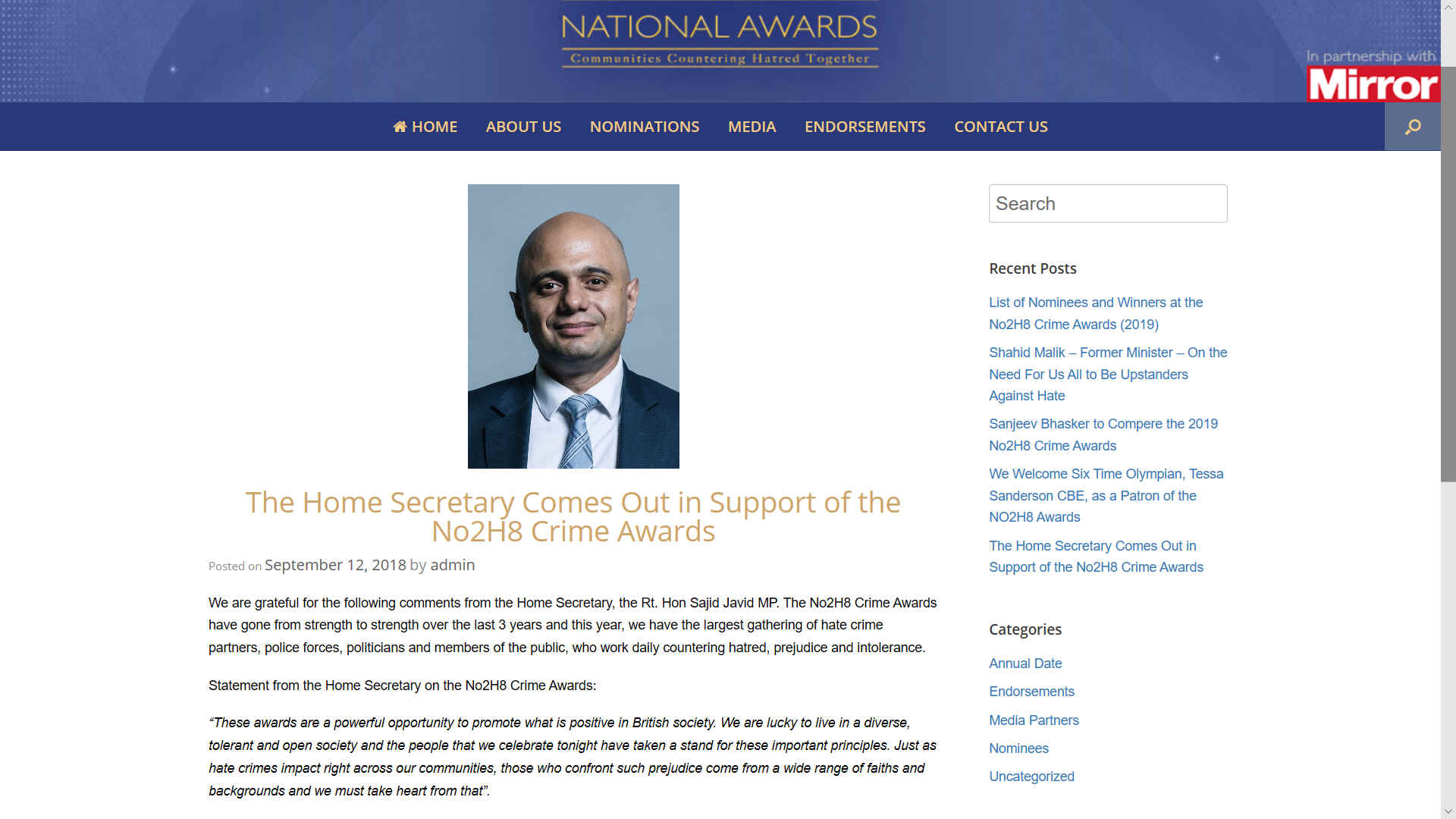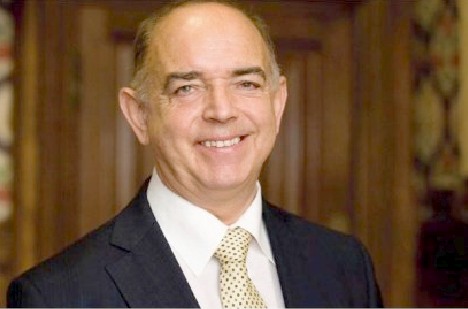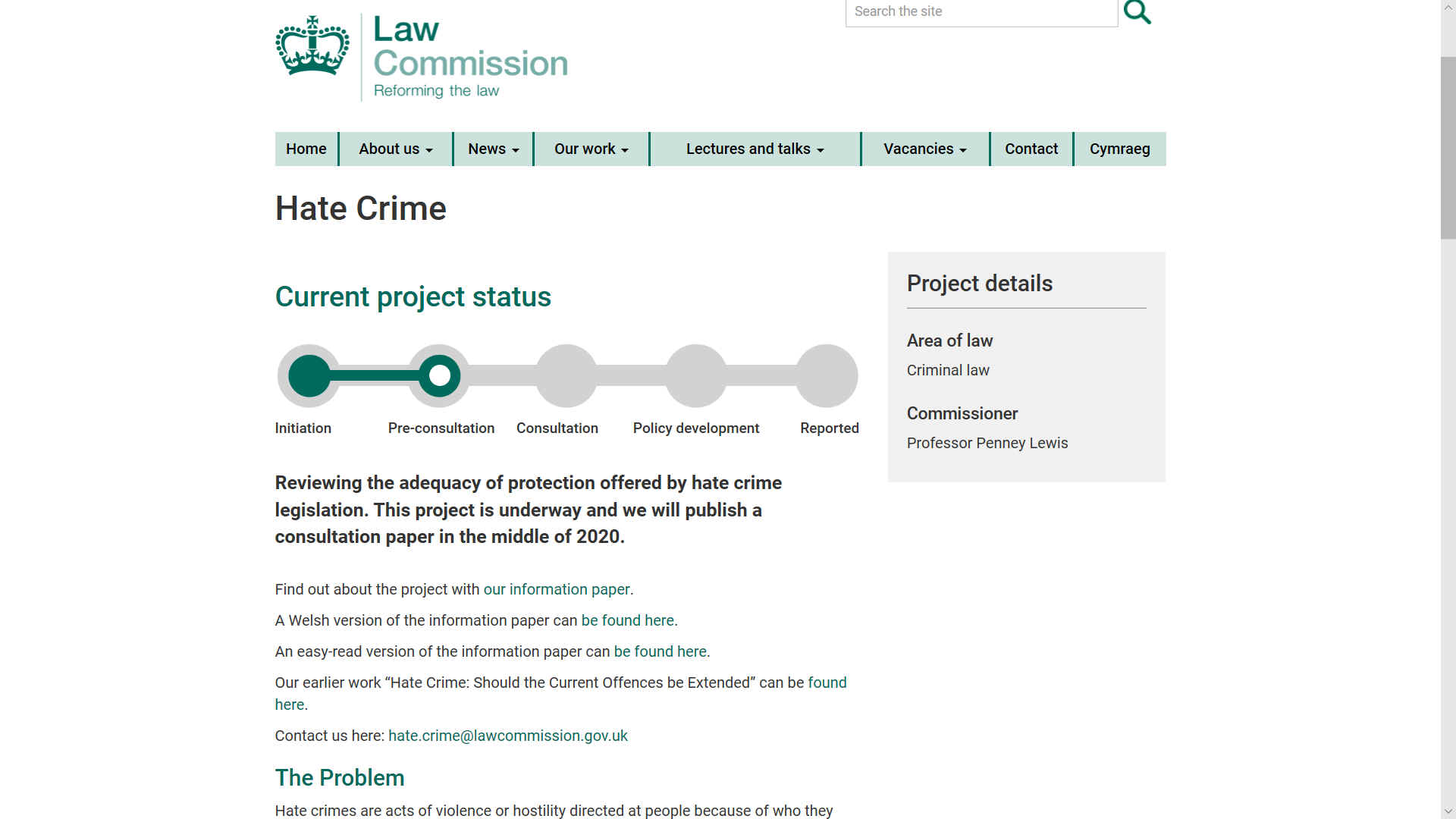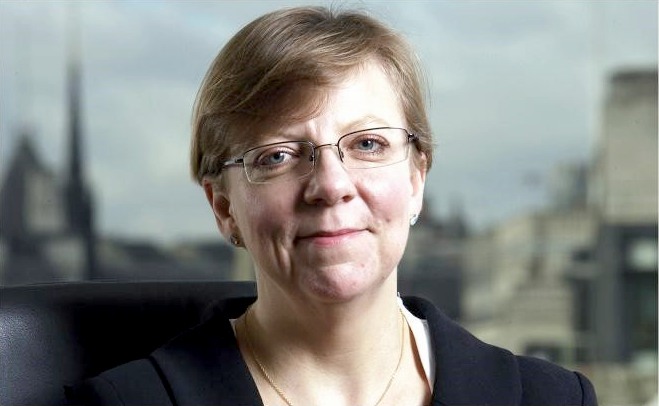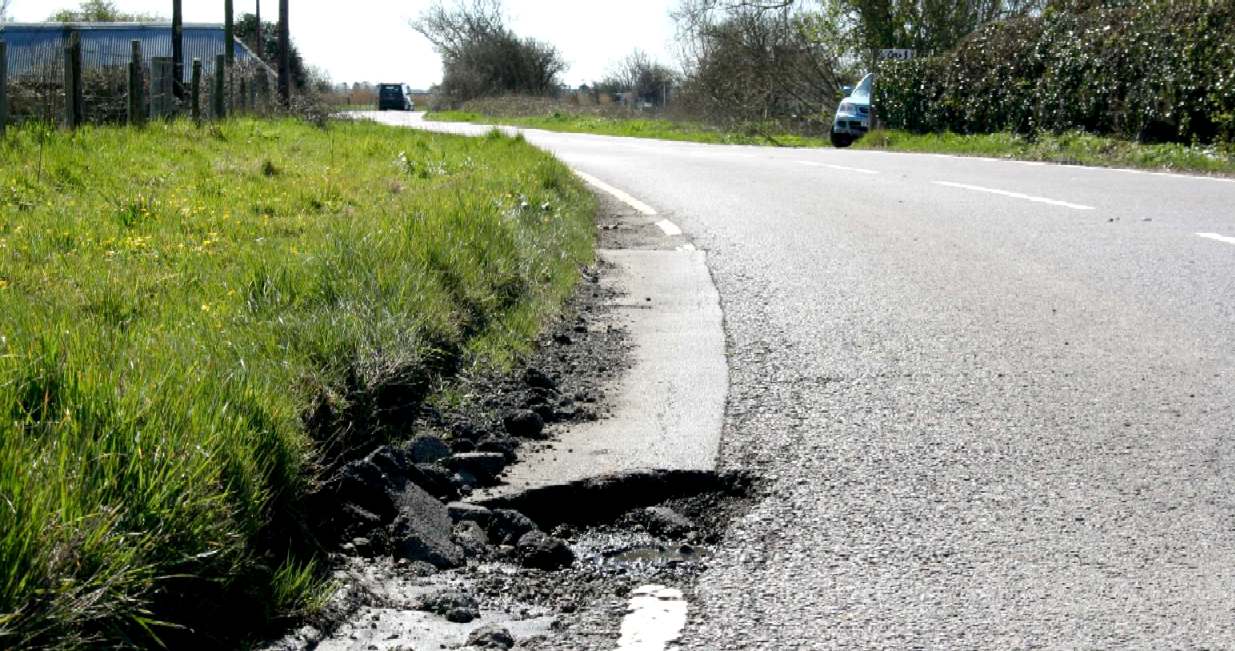|
HATE CRIMES
Please use our A-Z INDEX to navigate this site
Paul Whitehouse (1993-2001) Ken Jones (2001-2006) Joe Edwards (2006-2007) Martin Richards (2008-2014) Giles York (2014 >>)
|
||
SEPTEMBER 12 2018 - We are grateful for the following comments from the Home Secretary, the Rt. Hon Sajid Javid MP. The No2H8 Crime Awards have gone from strength to strength over the last 3 years and this year, we have the largest gathering of hate crime partners, police forces, politicians and members of the public, who work daily countering hatred, prejudice and intolerance. Statement from the Home Secretary on the No2H8 Crime Awards:
“These awards are a powerful opportunity to promote what is positive in British society. We are lucky to live in a diverse, tolerant and open society and the people that we celebrate tonight have taken a stand for these important principles. Just as hate crimes impact right across our communities, those who confront such prejudice come from a wide range of faiths and backgrounds and we must take heart from that”.
A hate crime is when someone commits a crime against you because of your disability, gender identity, race, sexual orientation, religion, or any other perceived difference.
It doesn’t always include physical violence. Someone using offensive language towards you or harassing you because of who you are, or who they think you are, is also a crime. The same goes for someone posting abusive or offensive messages about you online.
If it happens to you, you might be tempted to shrug it off. But if you report the hate crime, we can investigate and stop it from getting worse – either for you or someone else.
PARLIAMENTARY UPSTANDER AWARD 2019
A hate crime is defined as 'Any criminal offence which is perceived by the victim or any other person, to be motivated by hostility or prejudice based on a person's race or perceived race; religion or perceived religion; sexual orientation or perceived sexual orientation; disability or perceived disability and any crime motivated by hostility or prejudice against a person who is transgender or perceived to be transgender.'
November 24, 2016 - Statement from
Lord Bourne of Aberystwyth, Parliamentary Under Secretary of State at the Department for Communities and Local Government
However, it is the important work of Tell MAMA and other organisations supporting tonight’s event that make this possible in their work tackling prejudice with people from all backgrounds. It is essential that each of us rejects hatred, offering instead empathy and support to victims of hate crime. This evening’s launch of the National Hate Crime Awards is an opportunity to honour the remarkable individuals who are leading the fight against hate crime and I am delighted to offer my support. “
Statement from the Right Honourable Nick Clegg MP - “The National Hate Crime Awards are hugely important to honour the tireless and selfless work that so many do across the country to challenge intolerance. We have recently seen rises in hate crimes across the UK yet the cornerstone of our country is based on protecting the dignity and identities of people so that they are not targeted out of hatred, intolerance and prejudice. I stand by these core values and that is why we must honour those in our communities who stand up against such intolerant behaviour.”
TYPES OF HATE CRIME
Victims of verbal abuse are often unclear whether an offence has been committed or believe there is little they can do. However, there are laws in place to protect you from verbal abuse.
If you’ve been the victim of verbal abuse, talk to the police or one of our partner organisations about what has happened. You’ll find a list of them on our How to report hate crime page
INCITEMENT TO HATRED
- web pages that show pictures, videos or descriptions of violence against anyone due to their perceived differences
- chat forums where people ask other people to commit hate crimes against a specific person or group
SUSSEX POLICE
Sussex Police supposedly investigated the report of a hate crime in 2019, but failed to interview near neighbours or secure their company records, where it was alleged that a roofer had made abusive comments based on information that could not have come from anywhere other than those giving him instructions as to the local estate. A local gardener who witnessed one of the abusive assaults declined to give a statement, But was at least interviewed.
NO STATUTE OF LIMITATIONS - Evidence of criminal malfeasance in common law is mounting against each chief constable in turn as they refuse to investigate crimes against the person. Historic allegations often take a while before the state acts. It matters not if a crime is 20 or even 30 years in the making, it is in the public interest to make an example of the offenders to ward off other similar crimes taking place in other forces and planning departments across Great Britain. We are sure that Her Majesty and successor Kings would want to clean up British local government, such that the UK might hold it's head high when leading the Commonwealth.
DEMONSTRABLE BIAS & HATE CRIMES
You may have heard of bias, and you may wonder what that means. Bias is when the police are so intent on finding a person guilty of a crime that they are only looking for evidence that help them gain a conviction. Any evidence that points the other way is ignored and in some cases buried, but is never disclosed. Where bias is evident one can never be sure that the investigating officers did their job. Indeed, we know they did not in the case in point where they failed to secure key evidence that would have helped the defendant prove his innocence. This is exactly the same cherry picking that Alison Saunders was accused of. Regardess of the fact that it is institutionalised in the police, it is still a crime.
WHAT IS HATE CRIME ?
The term 'hate crime' can be used to describe a range of criminal behaviour where the perpetrator is motivated by hostility or demonstrates hostility towards the victim's disability, race, religion, sexual orientation or transgender identity - or an assumption of any of these, including those accused of liking young children, typically called paedophiles.
These aspects of a person's identity are known as 'protected characteristics'. A hate crime can include verbal abuse, intimidation, threats, harassment, assault and bullying, as well as damage to property. The perpetrator can also be a friend, carer or acquaintance who exploits their relationship with the victim for financial gain or some other criminal purpose.
-
racially and religiously aggravated;
These strands are covered by legislation (sections 28-32 of the Crime and Disorder Act 1998 and sections 145 and 146 of the Criminal Justice Act 2003) which allows prosecutors to apply for an uplift in sentence for those convicted of a hate crime.
The police and the CPS have agreed the following definition for identifying and flagging hate crimes:
There is no legal definition of hostility so we use the everyday understanding of the word which includes ill-will, spite, contempt, prejudice, unfriendliness, antagonism, resentment and dislike.
HOW
THE CPS DEALS WITH HATE CRIME
In 2016/17, 83% of hate crimes cases
the CPS prosecuted led to a conviction or guilty plea. Because of the serious nature of these offences, the CPS can apply to the courts for a 'sentence uplift' which is an increased punishment for the crime. Last year, more than half of
these requests led to offenders having their sentence increased because it was motivated by hate.
INCIDENT
PERPETRATORS
-
Have there been any previous incidents involving the offender and hostility or targeted anti-social behaviour?
CASE LAW
Evidence of words (spoken or written) or actions that show hostility towards the victim will be required. "Demonstrations" of hostility often involve swear words, for example: "black bastard" (R v Woods [2002] EWHC 85) or "African bitch" (R v White [2001] EWCA Crim 216). In RG & LT v DPP [2004] EWHC 183 May LJ said "It may be possible to demonstrate racial hostility by, for instance, holding up a banner with racially offensive language on it".
In R v Rogers (2007) 2 W.L.R. 280, the defendant was involved in an altercation with three Spanish women during the course of which he called them "bloody foreigners" and told them to "go back to your own country". The House of Lords, in upholding the defendant's conviction, held that the definition of a racial group clearly went beyond groups defined by their colour, race, or ethnic origin. It encompassed both nationality (including citizenship) and national origins. The statute intended a broad non-technical approach. Furthermore the victim might be presumed by the offender to be a member of a particular group, even if that was not correct. The House of Lords added that the fact that the offender's hostility was based on other factors in addition to racist hostility or xenophobia was irrelevant. The court also observed that the necessary hostility could be demonstrated by the wearing of swastikas or the singing of certain songs.
The demonstration of hostility need not be based on any malevolence towards the group in question. Disposition at the time is irrelevant: see DPP v Green [2004] EWHC 1225 (Admin.) and R v Woods, in which it was irrelevant that the offender, who used racially abusive language to a doorman after being refused admission, might well have abused anyone standing in the victim's place by reference to any obvious physical characteristic.
The motivation based on hostility need not be the sole or main motivation for the offence; it may also be motivated by other reasons. In DPP v McFarlane [2002] EWHC 485 (Admin), the defendant shouted threatening and racist abuse at the victim after finding the victim parked in a disabled bay in which the defendant was entitled to park. It was immaterial that the defendant may have had an additional reason for uttering the racial words in question.
The victim's reaction to the hostility is not relevant. See R v Woods, in which the victim was called a "black bastard" but said in evidence that he was "not bothered" by such comments. The Administrative Court found that the use of racist abuse during the commission of the basic offence made out the test for racial aggravation.
In R v Fitzgerald [2003] EWCA Crim 2875 the Court of Appeal acknowledged the guidance contained in Kelly and Donnelly but distinguished it by noting there will be cases in which the aggravating feature of the offence is so inherent and integral to the offence itself that it is not possible sensibly to assess the overall criminality involved in such a discrete way. In such cases, the Court must assess the seriousness of the conduct involved and its criminality as a whole
In the case under investigation, the group is a Limited Company. The fact it is limited liability in terms of financial dealings and business risks, does not protect the directors from criminal liability in terms of hate crime and spreading rumours such as to foster negative feelings in people they employ to act as their agents, in attacks on the intended victim.
HOSTILITY
Hostility is not defined in the Act. Consideration should be given to ordinary dictionary definitions, which include ill-will, ill-feeling, spite, prejudice, unfriendliness, antagonism, resentment, and dislike.
Mere evidence of the commission of the substantive offence against a victim is not sufficient.
DISCLOSURE CONSTITUTES AN OFFENCE -
GENDER RECOGNITION ACT 2004 & HATE CRIME
It also includes those functions as an employer or prospective employer or in the conduct of business or the supply of professional services.
Before taking a decision to issue a summons to require the victim to give evidence, prosecutors must make enquiries to satisfy themselves as far as possible that the safety of the victim will not be endangered by their decision. The safety of the victim is a prime consideration.
Section 116 applications are often unsuccessful when the victim is the only witness to the offence, because in such cases it is very difficult to satisfy the court that justice is being served when the defence cannot cross-examine the only witness against them.
Schedule 21 - Criminal Justice Act 2003 (determination of minimum term in relation to mandatory life sentence)
FREEDOM OF SPEECH & THOUGHT - ARTICLES 9 & 10 HUMAN RIGHTS
In deciding upon the public interest of charging these offences it is essential that everyone keeps in mind that in a free, democratic and tolerant society people are able to robustly exchange views, even when these may cause offence. However, we have to balance the rights of the individual to freedom of expression against the duty of the state to act proportionately in the interests of public safety, to prevent disorder and crime, and to protect the rights of others.
CASE CRAFTING & NON INVESTIGATION
...
Statement from Alison Saunders CB, Director of Public Prosecutions (DPP) at the Crown Prosecution Service (CPS).
THE LAW COMMISSION
We don't think that the current protections are sufficient to protect those accused of crimes, or appellants who may have been convicted of a crime, but where that conviction is later shown to be unsafe.
In such circumstances an innocent person may be targeted by a group with vested interests in, for example, land. Where they might think that in applying pressure to their victim that they might get the target to move, or otherwise the group may benefit financially in the acquisition of a property at an undervalue.
This was and potentially still is, a matter of ongoing concern to a potential appellant, where Wealden District Council and Sussex police are alleged to have colluded in framing an innocent man to clear their books of their own wrongdoing.
Such a situation leaves the person maintaining their innocence in a vulnerable position, where his local force may not be relied on to act impartially, and in fact should not act for the appellant in waiting, as per R v Sussex Justices 1924, where justice must not only be done, but be seen to be done.
The real problem here being that there is no right of appeal in the UK, and that the CCRC are, or at least, have been inept in this case, refusing to countenance virginity issues and evidential discrepancies leading to the Jury being misinformed by the Judge in his Summing Up.
Contact the Law Commission here: hate.crime@lawcommission.gov.uk
...
SUSSEX POLICE A - Z OF OFFICER INVESTIGATIONS
LINKS & REFERENCE
https://www.lawcom.gov.uk/project/hate-crime/ https://www.met.police.uk/advice/advice-and-information/hco/hate-crime/what-is-hate-crime/ https://www.cps.gov.uk/legal-guidance/homophobic-biphobic-and-transphobic-hate-crime-prosecution-guidance https://www.stophateuk.org/what-is-hate-crime/ https://www.thesun.co.uk/news/10628297/alison-saunders-dame-new-year-honours/ https://www.telegraph.co.uk/news/2018/12/29/alison-saunders-much-criticised-former-cps-chief-becomes-first/ https://no2h8crimeawards.org/2016/11/endorsements-leading-politicians-national-hate-crime-awards/
|
||
|
AFFORDABLE | CLIMATE | DEVELOPERS | ECONOMY | FLOOD | HISTORY | HOMES LADDER | MORALS | POVERTY | PROPERTY | SLAVERY | TAXES | SLUMS | VALUATIONS | WEALTH
|
